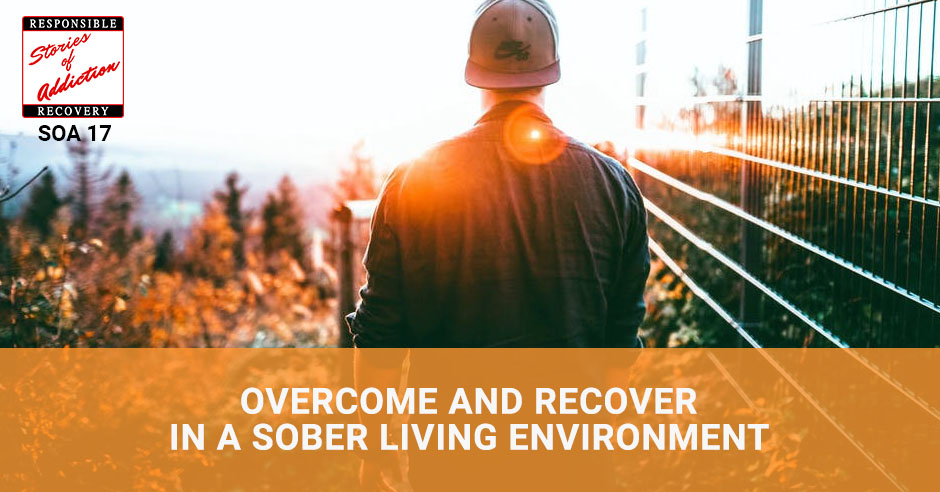Overcome And Recover In A Sober Living Environment
 Overcoming and recovering from an addiction is never easy. That is, if you keep choosing to do it alone. There are many individuals who travel down the road to recovery who need your support as much as you need theirs. A sober living environment isn’t a treatment facility. Rather, it houses a family of individuals who are serious about overcoming and recovering from their addiction. While it may sound like a shortcut to recovery, a sober living environment is a place for people who are clean and sober and want to stay that way while they work their own programs of recovery. Learn how a sober living house creates an environment of recovery, support and family.
Overcoming and recovering from an addiction is never easy. That is, if you keep choosing to do it alone. There are many individuals who travel down the road to recovery who need your support as much as you need theirs. A sober living environment isn’t a treatment facility. Rather, it houses a family of individuals who are serious about overcoming and recovering from their addiction. While it may sound like a shortcut to recovery, a sober living environment is a place for people who are clean and sober and want to stay that way while they work their own programs of recovery. Learn how a sober living house creates an environment of recovery, support and family.
Listen to the podcast here:
Overcome And Recover In A Sober Living Environment
In this episode, I’ll be giving you an understanding of the role of a sober living environment in your journey to sobriety. I run a sober living environment called Gault House in Santa Cruz, California. Every sober living environment is a family of people who are disabled by an addiction to drugs or alcohol. This family of people chooses to abide by self-imposed rules that help to maintain their living environment as a clean and sober house. By creating this living environment, members of this family help themselves to overcome their addiction. Members of any sober living family take responsibility for their own recovery from drugs or alcohol addiction, while having the safety of living in a structured drug-free and alcohol-free house. Sober living environments are managed by people who live in the sober living environment; in other words, a group of your peers.

Sober living environments are governed under the Fair Housing Act as a family of people with a common disability. A sober living environment is not a treatment facility, no counseling is provided. Each family member must work their own program of recovery, whatever that program may be, but there must be a real program of recovery that is being worked. A sober living environment is essential for anyone who is serious about overcoming addiction. If you’re an addict and you want recovery, you have got to follow the system to get clean. That means staying away from drugs and alcohol completely and other people who use drugs and alcohol.
The individual must be driven to achieve their own sobriety by attending AA or NA meetings, working the Twelve‑Step Program, getting a sponsor, eating healthy, getting good sleep, avoiding bad relationships, and living somewhere that promotes this lifestyle. A sober living environment will not make a drunk or sober or an addict quit using. If a family member uses drugs or alcohol while they are living in a sober living environment, they will be asked to leave the family immediately.
The whole point of a sober living environment is to have a clean and sober place for people to live who are serious about overcoming the addiction. Everyone agrees before they joined the family that if they relapse to using drugs or alcohol, they will leave the property immediately. Random drug testing plus the wise eyes of other people who have been there and done that will quickly alert other family members to your relapse and your peers will tell you to leave the property. There is no shortcut to overcoming addiction. It is 100% abstinence. This can be achieved by attending a residential treatment program for 30 to 90 days, if you can afford it, or an intensive outpatient program if you can’t afford residential treatment. Living in a sober living environment is getting peer support through meetings and events, following the Twelve-Step Program for more spiritual connectedness, buying books on recovery, listening to inspirational stories of recovery, and doing everything you can to support your 100% abstinence from drugs and alcohol.
While you are living at a sober living environment, you should focus on learning new hobbies. Perhaps you would like to learn to play a musical instrument or you might take up surfing. Having things that you are now going to move towards that are replacing your previous habits is a good goal to have for yourself while you’re living at a sober living environment, things like making friends with other people that live at that sober living environment, at least to the point where you go to meetings together. You have those people’s cell phone number in your cell phone so that you could call them if you are having urges or thoughts about using and you needed to speak to somebody who would coach you away from those thoughts. All of these activities are intended to build your sobriety, the strength of your sobriety, and give yourself a better chance at not relapsing.
A sober living environment is a great time to rebuild your life and you should take full advantage of it. When you use a sober living environment in this way, you will get its full benefits. You will achieve sobriety if you follow this tried and tested pattern. It is not easy. Nobody is suggesting it’s easy to do all these things, but it has been shown that if you want to overcome an addiction, you have to go to 100% abstinence and you should get some intensive education on drug addiction, either in a residential treatment program or an intensive outpatient program. You absolutely must stay in a sober living environment. There’s no point in going back to your apartment or your parent’s house where you were using before and thinking that you’re not going to be lulled back into using again. You must get peer support from meetings and events. When you go to these meetings, there is no point in just sitting in the back and saying nothing. Participate in the meeting.

The Twelve-Step Program is excellent for making people more conscious and spiritually connected and having a connection to their higher power. By traveling with your higher power, you are never alone and you make better decisions by consulting your higher power before you make a choice. I personally believe the Twelve-Step Program is very helpful. I’ve found Alcoholics Anonymous to be very helpful. I also think that buying books, listening to podcasts such as Stories of Addiction, going to events, connecting with other people who are in recovery, having fun, living a conscious life, making contributions to your community during the recovery dance, being proud of the fact that you’re sober and that you didn’t wake up with a hangover, and that you don’t plan to drink or use drugs and you won’t wake up with a hangover, having things to look forward to moving away from drugs and moving towards new healthy activities are all possible.
A sober living environment is a key part to creating this new lifestyle for yourself. When you think of a sober living environment like this, you are going to be on the right track. Think of it as a cooperative living environment. You might think a house that’s a vegan house, an unsuitable place for somebody who wants to eat a steak every night to live. A vegan house should only be lived in by vegans. A sober living house should only be lived in by people who are clean and sober.
I hope this helps people to understand what the role of a sober living environment is within your tools that you can deploy to help you to overcome your addiction. Stay sober and be happy.
—
To learn more about recovery from addiction and to get started in the Recovery Lifestyle, join our mailing list here at http://www.ResponsibleRecovery.net and join the conversation taking place on our FaceBook group and follow us on Twitter.


